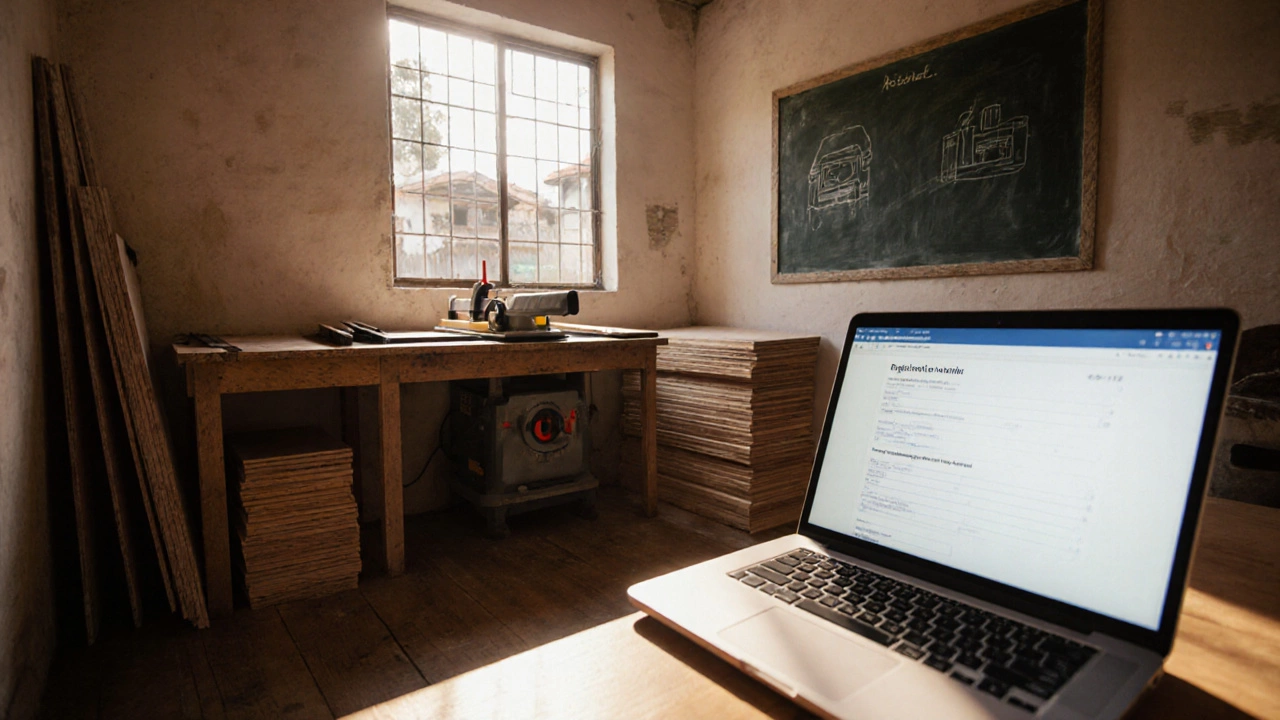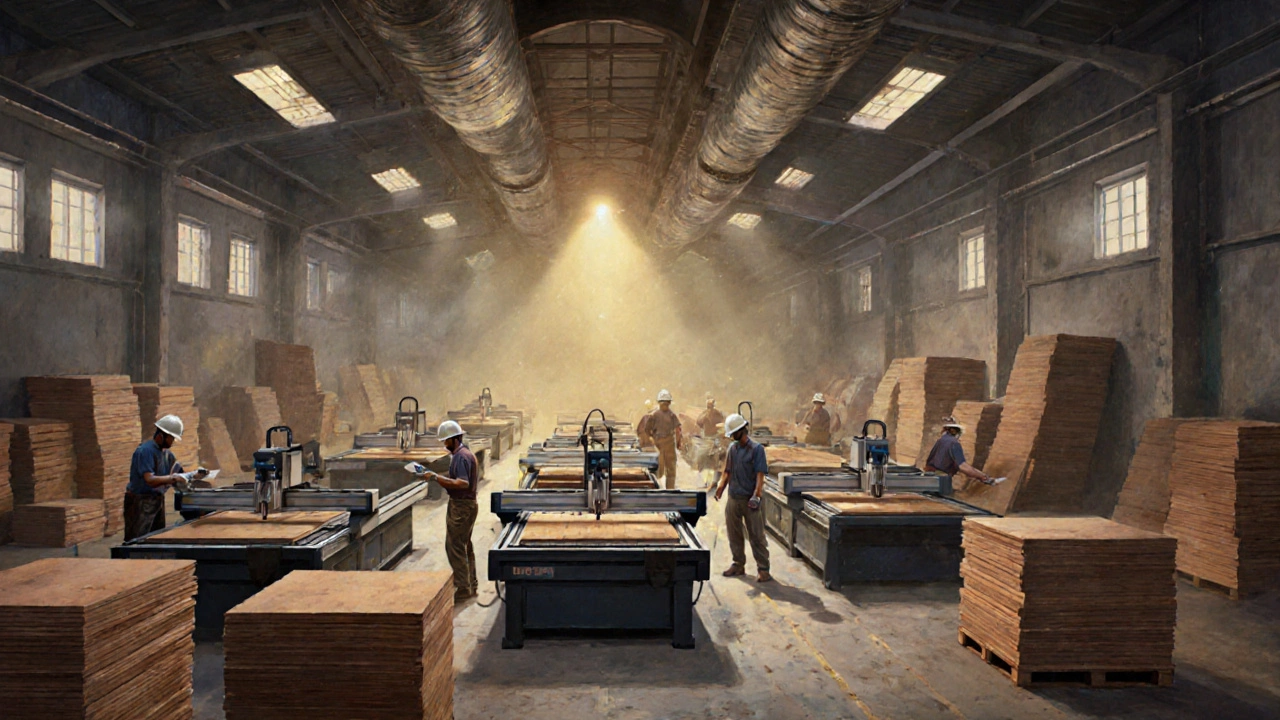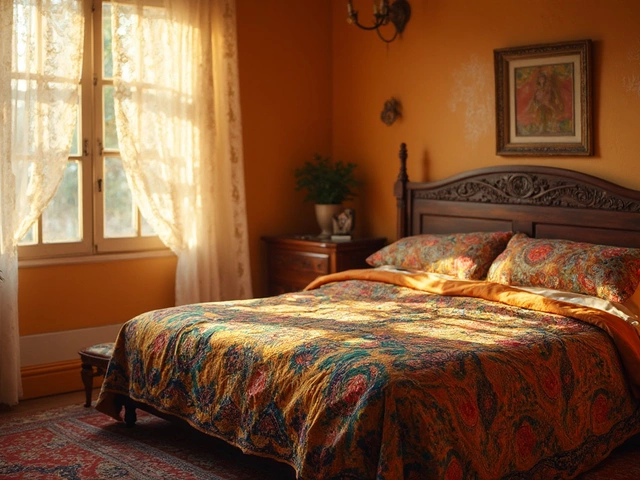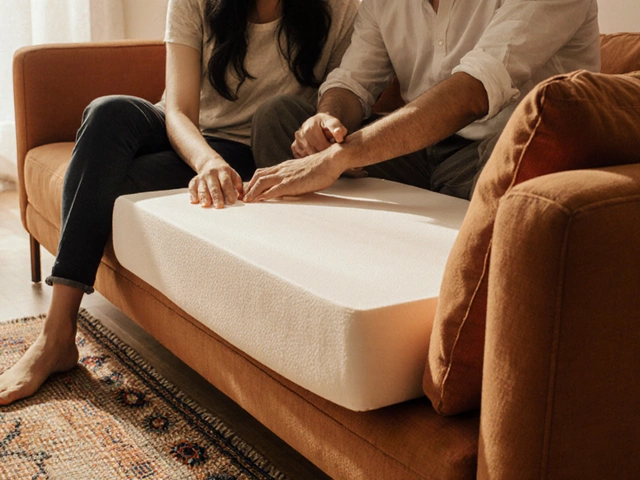
Furniture Business Cost Calculator
Estimate Your Startup Investment
Estimated Startup Investment
Cost Breakdown
Quick Takeaways
- Initial investment ranges from ₹5 lakh for a home‑based unit to ₹2 crore for a mid‑size factory.
- Major cost buckets are registration, space, machinery, raw material, labor, and working capital.
- Government schemes like Startup India and MSME Credit Guarantee can cut up to 30% of financing costs.
- Location choice (metro vs tier‑2/3 city) can swing total spend by ₹30‑40 lakh.
- Plan for 6‑12 months of operating cash to survive the ramp‑up period.
When you hear people talk about a Furniture business in India as a lucrative venture that blends creativity with steady demand, the first question is always - how much cash do I need to get rolling? The answer depends on the scale you aim for, the product line you choose, and where you set up shop. This guide breaks down every expense you’ll face in 2025, shows realistic examples for a small home‑based operation and a medium‑size factory, and points you to funding sources that can lower the upfront hit.
Understanding the Cost Landscape
Starting a furniture manufacturing unit isn’t just buying a saw and hiring a carpenter. You have to navigate legal formalities, secure a workspace, invest in the right tools, buy raw material, and keep the lights on while orders trickle in. Below is the high‑level map of cost categories you’ll encounter:
- Legal & registration fees
- Industrial licenses and permits
- Workspace (rent, fit‑out, utilities)
- Machinery and equipment
- Raw material procurement
- Labor salaries and training
- Marketing and sales setup
- Working capital (inventory, cash flow buffer)
1. Legal and Registration Fees
Every Indian business needs to be a legal entity. The most common route for a furniture startup is the MSME Registration (Micro, Small & Medium Enterprises) that gives you access to subsidies, lower interest rates, and priority in government tenders.. Here’s what you’ll pay in 2025:
| Item | Fee (₹) | Notes |
|---|---|---|
| Company Incorporation (Private Ltd.) | 5,000-7,000 | Includes ROC filing |
| GST Registration | Free | Mandatory for sales > ₹20 lakh |
| Industrial License (if required for fire‑retardant wood) | 2,000-10,000 | Varies by state |
| MSME Registration | Free (government portal) | Optional but highly recommended |
| Trademark filing (brand name) | 4,500-7,500 | Protect your logo |
2. Workspace - Rent, Fit‑out, Utilities
The size of your workshop dictates the rent. A 200 sq ft shed in a tier‑2 city can be as low as ₹10,000 per month, while a 2,000 sq ft industrial unit in Mumbai can run above ₹2 lakh monthly. Remember to factor in:
- Flooring and power sockets for heavy machines
- Ventilation and dust extraction systems (≈ ₹1‑2 lakh initial)
- Electricity (≈ ₹8‑12 per unit for 500 kWh/month)
- Water supply for finishing processes
For a small home‑based start, you can convert a garage or part of a house, saving the rent completely but adding a modest renovation cost of ₹50,000‑₹1 lakh.
3. Machinery and Equipment
Choosing the right machines is the biggest capital outlay. Here’s a typical list for wood furniture:
| Machine | Price Range | Purpose |
|---|---|---|
| Panel Saw | ₹2‑5 lakh | Cut plywood, MDF |
| CNC Router | ₹3‑8 lakh | Precision carving, edge profiling |
| Edge Bander | ₹1‑2 lakh | Apply veneer edges |
| Drilling / Pocket Hole Machine | ₹30,000‑80,000 | Fast assembly |
| Finishing Booth (spray or UV) | ₹1‑3 lakh | Apply paint, varnish |
For a low‑budget starter, you can rent a CNC router on an hourly basis (≈ ₹1,500 per day) and purchase only a panel saw and a basic drill.

4. Raw Material Costs
Wood is the heart of your product. Prices fluctuate with market demand, but in 2025 the average rates are:
- Sheesham (Indian teak) - ₹1,200‑1,500 per cubic foot \n
- MDF - ₹500‑650 per sheet (8 × 4 ft)
- Plywood - ₹850‑1,100 per sheet (8 × 4 ft)
- Veneer - ₹300‑500 per sq ft
If your first collection includes 200 pieces, expect a raw material outlay of roughly ₹6‑8 lakh, assuming a mix of MDF and solid wood.
5. Labor Expenses
Skilled carpenters in tier‑2 cities earn around ₹15,000‑₹20,000 per month, while helpers earn ₹8,000‑₹10,000. For a small unit (2 carpenters, 2 helpers) the monthly payroll is about ₹50,000‑₹60,000. Add statutory contributions (ESI, PF) - roughly 12% extra.
6. Marketing, Branding, and Sales Channels
In 2025, most furniture startups sell via a mix of online marketplaces (Amazon, Flipkart), a simple Shopify store, and local showrooms. Budget line items:
- Website & e‑commerce setup - ₹30,000‑₹60,000 (one‑time)
- Digital ads (Google, Instagram) - ₹15,000‑₹40,000 per month
- Branding & logo design - ₹5,000‑₹15,000
- Participation in local furniture fairs - ₹10,000‑₹25,000 per event
7. Working Capital (Cash Flow Buffer)
Even after you have the product, you’ll need cash to buy raw material before you receive payment from retailers or customers. A safe rule is to keep 3‑4 months of operating expenses in the bank. For a small unit, that’s roughly ₹4‑5 lakh; for a medium unit, ₹15‑20 lakh.

Cost Estimates: Small vs. Medium Scale
| Scale | Registration & Licenses | Space & Fit‑out | Machinery | Raw Materials | Labor (6 months) | Marketing | Working Capital | Total |
|---|---|---|---|---|---|---|---|---|
| Home‑Based (≈ 200 sq ft) | ₹7,000 | ₹1,00,000 | ₹2,00,000 | ₹6,50,000 | ₹3,00,000 | ₹1,00,000 | ₹4,00,000 | ≈ ₹15,57,000 |
| Mid‑Size Factory (≈ 2,000 sq ft) | ₹25,000 | ₹12,00,000 | ₹12,00,000 | ₹25,00,000 | ₹18,00,000 | ₹5,00,000 | ₹20,00,000 | ≈ ₹92,25,000 |
These figures are ball‑park numbers for 2025. Your actual spend could be lower if you leverage used machinery or locate in a subsidised industrial park.
Funding Options & Government Schemes
India offers several avenues to reduce the cash burden:
- Startup India - Provides 80% rebate on patent filing and 50% rebate on registration fees for approved startups.
- MSME Credit Guarantee Scheme - Guarantees 75% of bank loans up to ₹2 crore, easing collateral requirements.
- Pradhan Mantri MUDRA Yojana - Offers loans from ₹50,000 to ₹10 lakh at 9‑11% interest for micro‑enterprises.
- Technology Upgradation Fund (TUFS) - Grants up to 15% of machinery cost for furniture units that adopt green technology.
- State‑specific incentives - e.g., Karnataka’s “Furniture Cluster” offers subsidised land and electricity.
Prepare a solid business plan (showroom layout, projected sales, break‑even analysis) to improve approval odds.
Tips to Keep Costs Low
- Start with a narrow product line (e.g., 5‑7 designs) to limit raw material variety.
- Buy wood in bulk during the monsoon season when prices dip.
- Partner with a local carpentry school for apprentice labor at lower wages.
- Use CNC routing for repetitive cuts - saves both time and material waste.
- Rent space in an existing industrial hub instead of building from scratch.
Common Pitfalls to Avoid
- Under‑estimating working capital - many founders run out of cash before the first big order arrives.
- Skipping quality checks - low‑grade wood leads to returns and brand damage.
- Ignoring compliance - missing GST or labour law filings can result in heavy penalties.
- Over‑investing in high‑end machinery before confirming market demand.
Next Steps Checklist
- Choose a legal structure (Private Ltd. or LLP) and file incorporation.
- Complete MSME, GST, and any required industrial license registrations.
- Scout locations - compare rent, logistics, and state incentives.
- Prepare a detailed budget based on the tables above.
- Apply for suitable government schemes or bank loans.
- Set up a pilot production line and test‑run a few designs.
- Launch an online store and start soft marketing.
What is the minimum capital needed to start a small furniture workshop?
For a home‑based or 200 sq ft workshop, you can start with roughly ₹12‑15 lakh covering registration, a basic panel saw, raw material, and six months of payroll.
Do I need an industrial license to make wooden chairs?
An industrial license is only mandatory if you use fire‑retardant chemicals, handle hazardous finishes, or exceed a certain production capacity defined by the state. For basic woodwork, registration and GST are sufficient.
Which Indian state offers the best incentives for furniture manufacturers?
Karnataka’s Furniture Cluster, Tamil Nadu’s SIDCO estates, and Gujarat’s Gujarat Industrial Development Corporation (GIDC) all provide subsidised land, electricity discounts, and easy loan access. Choose based on proximity to raw material sources and logistics.
Can I get a GST number for free?
Yes, GST registration is free through the GST portal. The cost comes only from professional assistance if you hire a consultant.
How long does it take to set up a mid‑size factory?
From land lease to operational line, expect 3‑5 months if you have approvals in place. Delays usually arise from utility connections or delayed import of CNC equipment.




